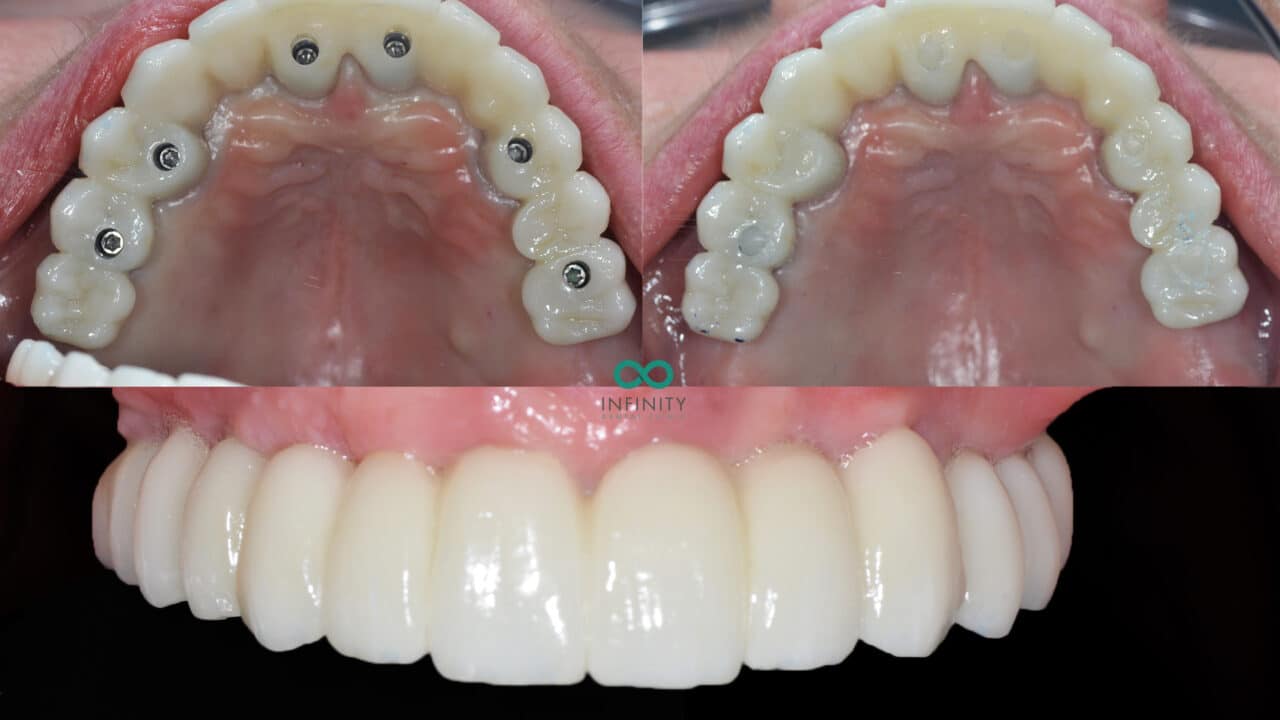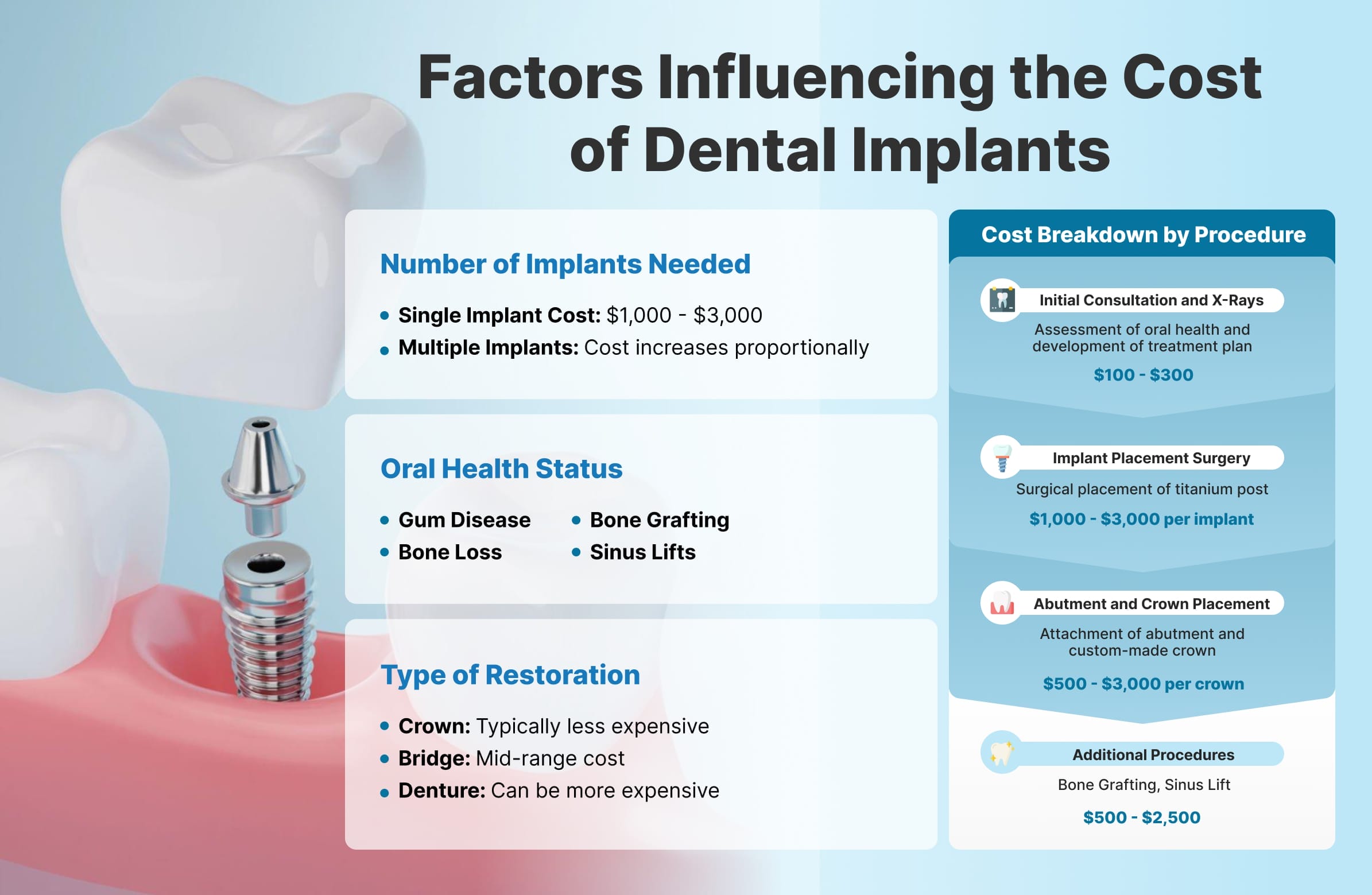The 10-Second Trick For Dental Sense
Table of ContentsDental Sense for DummiesThe 5-Minute Rule for Dental SenseThe Facts About Dental Sense UncoveredSome Ideas on Dental Sense You Should Know
are medical tools operatively dental implanted right into the jaw to bring back an individual's capability to chew or their appearance. They provide assistance for man-made (fake) teeth, such as crowns, bridges, or dentures. When a tooth is lost due to injury or illness, a person can experience problems such as fast bone loss, malfunctioning speech, or changes to eating patterns that cause discomfort.Dental dental implant systems contain an oral implant body and dental implant abutment and might also include a joint addiction screw. Dental implant vs bridge. The dental implant body is surgically inserted in the jawbone instead of the tooth's root. The dental implant abutment is usually affixed to the dental implant body by the abutment fixation screw and extends through gums into the mouth to support the connected fabricated teeth
(http://www.place123.net/place/dental-sense-miami-united-states)Framework of The Dental Implant System selecting oral implants, speak to your oral company concerning the prospective benefits and threats, and whether you are a prospect for the procedure. Points to consider: Your total health and wellness is a crucial variable in establishing whether you are an excellent candidate for dental implants, just how long it will take to heal, and the length of time the implant may remain in place.
Smoking may impact the recovery procedure and lower the lasting success of the implant. The recovery process for the implant body may take several months or longer, throughout which time you usually have a short-term joint in location of the tooth. the oral implant treatment: Carefully comply with the dental health instructions provided to you by your dental supplier.
3 Easy Facts About Dental Sense Explained
Implant failure can cause the demand for one more surgical treatment to repair or change the implant system. Recovers the capability to chew Restores aesthetic appearance Assists keep the jawbone from diminishing because of bone loss Maintains the health of the bordering bone and gums Assists maintain surrounding (neighboring) teeth stable Enhances top quality of life Damages to bordering all-natural teeth throughout implant positioning Injury to the surrounding tissues during surgical treatment, such as sinus perforation Injury throughout surgical procedure (as an example, crack of surrounding jawbone) Poor function, such as seeming like the teeth do not attack with each other typically A feeling that the tooth is loose or turning in location arising from an abutment screw loosening Implant body failing (looseness of the dental implant body) due to systemic infection, which might be most likely in patients with unrestrained diabetics issues as a result of regional infection in bone and gums supporting the dental implant body as a result of delayed recovery, which might be more likely in clients that smoke Difficulty cleaning the gums around the implant, resulting in bad dental hygiene Without treatment periodontal official site illness Post-surgical numbness because of nerve impingement or damage Constantly alert healthcare providers and imaging specialists that you have dental implants prior to any type of magnetic vibration imaging (MRI) or x-ray procedures.
FDA is not mindful of any kind of damaging events reported for MRI or x-ray procedures with oral implants. Dental implants systems are normally made from materials that follow worldwide agreement standards of the International Organization for Standardization (ISO) or ASTM International. These requirements have information of what makes a safe product.

A dental implant is a framework that changes a missing tooth. With screw-like gadgets, the surgeon inserts a dental implant right into the jawbone, and it acts as a support for a man-made tooth, called a crown.
Dental Sense Things To Know Before You Buy
Some people are not eligible for oral implant surgical procedure. It is for dental surgeons to operate individuals with: acute illnessuncontrollable metabolic diseasebone or soft tissue condition or infectionIf these issues are settled, a person can have the surgical treatment. In, oral cosmetic surgeons abstain from running on individuals with: If people with any one of the above undertake oral implant surgical procedure, there is a higher danger of the implant falling short.

Dental implant surgical treatment is a customized procedure. It's not the exact same for everybody. But the following provides a basic summary of what you can anticipate your dental expert, oral surgeon, periodontist or prosthodontist to do: Place the implant operatively. Offer you time to recover. Attach the post and final crown, bridge or denture.
Next off, your surgeon will thoroughly position the dental implant into your jaw. If your implant is near the front of your mouth, your dental expert will certainly make a short-lived tooth for you to wear until you recover.
The 5-Second Trick For Dental Sense
Your company can tell you what to expect in your situation. During the healing stage, your jawbone should fuse to the dental implant. This procedure, called osseointegration, is crucial for security and long-lasting success. This process can take anywhere from three to nine months. In many cases, it might take longer.
Once your implant heals, your dentist can connect the abutment (small connector post) and your last remediation (crown, bridge or denture). This normally takes regarding one hour to complete and may call for a second small surgery. You shouldn't feel any kind of pain during your dental implant procedure because your company will certainly use medicine to numb your gums.